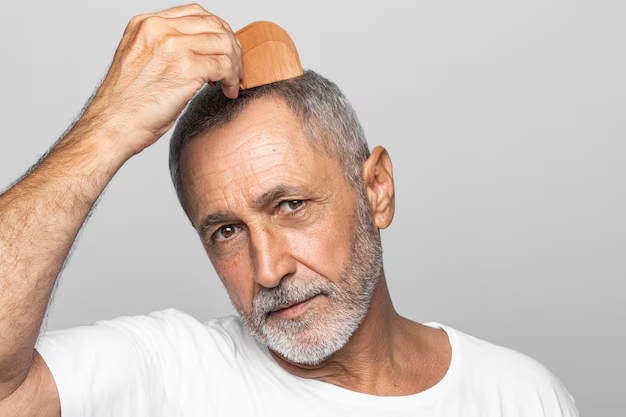Your Guide to Does Diabetes Cause Hair Loss
What You Get:
Free Guide
Free, helpful information about Diabetes FAQ and related Does Diabetes Cause Hair Loss topics.
Helpful Information
Get clear and easy-to-understand details about Does Diabetes Cause Hair Loss topics and resources.
Personalized Offers
Answer a few optional questions to receive offers or information related to Diabetes FAQ. The survey is optional and not required to access your free guide.
Can Diabetes Lead to Hair Loss? What You Need to Know
For many, the relationship between diabetes and hair loss is an unexpected and concerning revelation. While diabetes is fundamentally a metabolic condition that affects how your body processes blood sugar, its implications can extend much further, including possible effects on your hair. If you're noticing more strands in your brush and less volume on your crown, here’s what you need to understand about how diabetes might be connected.
Exploring the Connection
Hair loss isn't typically the first symptom people consider when thinking about diabetes. However, diabetes can indeed contribute to this issue for a variety of reasons:
- Poor circulation: Diabetes can impair blood flow, which means the scalp may not receive as much oxygen and essential nutrients as it needs to feed hair follicles.
- Hormonal changes: Poorly controlled diabetes can lead to fluctuations in hormone levels, affecting hair growth cycles.
- Alopecia areata: This autoimmune condition, which is more common among those with autoimmune disorders such as type 1 diabetes, can lead to patchy hair loss.
Stress and medication, both common aspects of managing diabetes, can also contribute to hair thinning. If you're living with diabetes and experiencing hair loss, it's crucial to consult a healthcare professional to identify the exact cause and appropriate remedies.
Practical Steps to Address Hair Loss
To manage hair loss related to diabetes, consider these practical tips:
- Focus on blood sugar control: Keeping your blood sugar levels in check is fundamental not only for your overall health but also for reducing the risk of complications like hair loss.
- Nourish your body: A balanced diet rich in vitamins and minerals, especially iron, zinc, and vitamins B and E, can promote healthier hair growth.
- Stress management: Techniques like meditation, exercise, and deep breathing can help reduce stress levels and potentially improve hair health.
- Discuss medications: If your hair loss might be a side effect of your current medication, speak with your doctor about alternatives.
Support Beyond Hair Care
Living with diabetes can be challenging, and addressing related issues like hair loss can sometimes feel overwhelming. Fortunately, there are financial and educational resources to support you:
- Government Aid Programs: Look into assistance programs that help manage medical expenses such as Medicare or Medicaid if eligible.
- Financial Assistance: Nonprofits and local charities can provide help with diabetes supplies and medications.
- Debt Relief Options: Consider debt management plans if medical expenses are putting a strain on your finances.
- Educational Grants: If you need to pivot careers due to health issues, educational grants and scholarships can assist in reskilling efforts.
Quick Resource Guide
Here’s a handy list of resources to aid those managing diabetes and its financial implications:
- 🏛 Government Aid: Investigate Medicare or Medicaid eligibility for potential medical bill relief.
- 💰 Financial Assistance: Explore diabetes-related charities for supply and medication support.
- 💳 Debt Relief: Look into debt management services if facing financial strain due to medical costs.
- 🎓 Educational Opportunities: Find educational grants or scholarships to help with career changes necessitated by health management.
Whether you’re tackling the physical manifestations of diabetes like hair loss, or the financial burdens it may bring, remember that there are paths forward, and support is available.
What You Get:
Free Diabetes FAQ Guide
Free, helpful information about Does Diabetes Cause Hair Loss and related resources.

Helpful Information
Get clear, easy-to-understand details about Does Diabetes Cause Hair Loss topics.

Optional Personalized Offers
Answer a few optional questions to see offers or information related to Diabetes FAQ. Participation is not required to get your free guide.


